Carole's Commentary on Watch Night...Watch It Below...Dear Family, Valuable Friends, Clients, and Colleagues:
From my home to yours, I wish you rich blessings into the New Year. Here is a special article I created about the history of Watch Night Service in the African American community. The tradition predates the importance of the famous 1862 Watch Night Services and originated with the Moravians in Germany many years earlier. The first Methodist church in America to celebrate Watch Night in the 1700s was St. George United Methodist Church in Philadelphia, the home church of Bishop Richard Allen, co-founder of the African Methodist Episcopal Church. However, it has become particularly important in the Black Church, with its evolution in the early to mid-1800s. The word evolved from “Freedom’s Eve” to “Watch Night” as the freed and enslaved blacks “watched” the clock strike 12 midnight, turning the course of the Civil War and freeing 3 million slaves in the states of the rebellion. Wishing You The Best in 2017 ! Carole Copeland Thomas, MBA CDMP, CITM --------------------------- The History Of Watch Night Services In The Black Church by Carole Copeland Thomas With the festivities of Christmas, Hanukkah, and Kwanzaa now on full display, there is still time to reflect on the ritual of my ancestors and many other African Americans, whose forefathers sat around campfires and wood stoves in the twilight of December 31, 1862. There they sang spirituals acapella, prayed, and thanked the Good Lord for what was about to happen the next day. In the North Abolitionists were jubilant that the “peculiar institution” was finally about to get dismantled one plantation at a time. The booklet, Walking Tours of Civil War Boston sites this about this historic event: “On January 1, 1863, large anti-slavery crowds gathered at Boston’s Music Hall and Tremont Temple to await word that President Abraham Lincoln had issued the much-anticipated Emancipation Proclamation (EP). Those present at the Music Hall included Uncle Tom’s Cabin author Harriet Beecher Stowe, poets Henry Wadsworth Longfellow and John Greenleaf Whittier and essayist, poet and physician Oliver Wendell Holmes, Sr. Also present was Ralph Waldo Emerson, who composed his Boston Hymn to mark the occasion.” Now… Let’s Look Back...154 Years Ago Tonight... It was on January 1, 1863 amidst the cannon fire, gun shots, and burnings at the height of the Civil War that President Abraham Lincoln sealed his own fate and signed the Emancipation Proclamation. It begins with the following decree: Whereas on the 22nd day of September, A.D. 1862, a proclamation was issued by the President of the United States, containing, among other things, the following, towit: "That on the first day of January, in the year of our Lord one thousand eight hundred and sixty-three, all persons held as slaves within any State or designated part of a State, the people whereof shall then be in rebellion against the United States, shall be then, thenceforward, and forever free; and the Executive Government of the United States, including the military and naval authority thereof, will recognize and maintain the freedom of such persons, and will do no act or acts to repress such persons, or any of them, in any efforts they may make for their actual freedom.” That the Executive will, on the first day of January aforesaid, by proclamation, designate the States and parts of States, if any, in which the people thereof, respectively, shall then be in rebellion against the United States; and the fact that any State, or the people thereof, shall on that day be, in good faith, represented in the Congress of the United States by members chosen thereto at elections wherein a majority of the qualified voters of such State shall have participated, shall, in the absence of strong countervailing testimony, be deemed conclusive evidence that such State, and the people thereof, are not then in rebellion against the United States." CAROLE' S TRANSLATION: Effective January 1, 1863 all slaves in the states in rebellion against the Union are free. Technically that is all that President Lincoln could do at the time. He used his wartime powers as Commander in Chief to liberate the "property" of the states in rebellion of the Union. The act did not free the slaves of the Union or border states (Delaware, Maryland, Kentucky, Missouri, or West Virginia) or any southern state under Union control (like parts of Virginia). It would take the 13th Amendment (that freed all slaves in 1865), the Union Army winning the Civil War (April 9, 1865), and the assassination of President Lincoln (shot on April 14th and died on April 15, 1865) for all of the slaves to be freed. That included the liberation of the slaves in rebellious Texas on June 19, 1865 (Juneteenth Day) and finally the ratification of the 13th Amendment on December 18, 1865, giving all black people freedom and permanently abolishing slavery in the US. So in 1862 on the eve of this great era, the slaves "watched", prayed, and waited. My ancestors, including Bishop Wesley John Gaines of the African Methodist Episcopal Church (AME) (a slave in Georgia freed by the EP) and the other three million slaves prayed for divine guidance and an empowered Abraham Lincoln to do the right thing. It is as important today as the tradition of black people eating black eyed peas on New Year's Day for good luck. Following the Emancipation Proclamation slaves were freed in stages, based on where they lived, the willingness of the plantation owner to release them and when Union troops began to control their area. Black educator and community activist Booker T. Washington as a boy of 9 in Virginia, remembered the day in early 1865: “As the great day drew nearer, there was more singing in the slave quarters than usual. It was bolder, had more ring, and lasted later into the night. Most of the verses of the plantation songs had some reference to freedom. ... Some man who seemed to be a stranger (a United States officer, I presume) made a little speech and then read a rather long paper—the Emancipation Proclamation, I think. After the reading we were told that we were all free, and could go when and where we pleased. My mother, who was standing by my side, leaned over and kissed her children, while tears of joy ran down her cheeks. She explained to us what it all meant, that this was the day for which she had been so long praying, but fearing that she would never live to see.” The longest holdouts were the slaves in Texas, who were not freed until June 19, 1865, two months after the Civil War ended. That day is not celebrated as Juneteenth Day around the United States. That is the history of Watch Night in the African American culture. May you and your family enjoy a spirit filled New Year throughout 2017. Thank you for ALL of your support you have given to me and my business throughout 2016. -Carole
2 Comments
Click Below And Listen To Today's Show Anytime
Check Out Business Podcasts at Blog Talk Radio with CaroleCopelandThomas on BlogTalkRadio
Focus On Empowerment can be heard every Thursday at 1pm Eastern.
Log Onto: www.blogtalkradio.com/globalcarole Listen LIVE or Download Anytime ======================== Last week we traced the history of the African Methodist Episcopal Church from its origins in 1787 to how it has expanded into the church of today. In light of the tragic events that shocked the nation when a gunman killed nine people attending Bible study at Emanuel AME Church in Charleston, South Carolina, the connections within the denomination are personal and deeply rooted for me. On today’s show I will go back and trace my AME roots that originate from the mid 1800s and share my American story so intertwined with our cultural past. From Georgia to Baltimore to the Midwest, the East Coast and around the United States, my family represents the essence of the AME Church. Faith, Education, Heritage and Family Reunions are the core ingredients that make my family so special to me. I will also be joined by cousins Theresa Johnson and Keith Williams who will share their knowledge on how our Gaines Family Reunion started back in the 1980s. The legacy of the Gaines/Charleston/Bachelor families is the legacy of family ties embedded in the AME Church. More Details About My Family: My grandfather, Rev. James A. Charleston built the present site of St. Paul AME -Detroit and paid for it before dying in the pulpit in June 1961. Rev. Charleston’s mother, Sarah Gaines Charleston was the wife of an AME minister and was the niece of Bishop Wesley John Gaines. Bishop Gaines was one of the founders of Morris Brown College (my grandmother’s alma mater). He also wrote 2-3 books before his death. Rev. Charleston’s brother, Dr. Samuel P. Charleston was a celebrated principal of the segregated Carver High School in Columbus, Georgia and a lifelong AME. When he died at the age of 95 in 1999, the city designated him one of the top 100 citizens of the 20th Century. Bishop Wesley John Gaines’ nephew was Bishop Abraham Lincoln Gaines. The Gaines Family in Baltimore were closely linked to Thurgood Marshall’s family and Bishop Vashti Murphy McKenzie’s Family. My cousin, Josephine Gaines, just died in July (right before our family reunion) at the age of 86. She as the last living grandchild of Bishop Abraham Lincoln Gaines. We have an extensive family tree that has been meticulously researched by my cousin Clarence Gaines in Chicago. Another ancestor, Rev. William Gaines, was part of a ministerial delegation during important meeting with Major General William Tecumseh Sherman in Savannah, Georgia in January 12, 1865. Here is a link to the transcript of that meeting: http://www.civilwarhome.com/shermanandministers.htm My family is FILLED with AME Ministers!!! Here is an excerpt from the 1865 meeting describing my ancestor who attended: 6. William Gaines, aged forty-one years, born in Wills County, Ga.; slave "until the Union forces freed me;" owned by Robert Toombs, formerly U.S. Senator, and his brother, Gabriel Toombs; local preacher of the Methodist Episcopal Church (Andrew's Chapel); in the ministry sixteen years. ================ Radio Broadcast for More Information About The Gaines Family Reunion: http://www.blogtalkradio.com/globalcarole/2014/07/24/the-gaines-family-reunion-how-to-build-a-legacy-one-generation-at-a-time ======================== YOUR COMMENTS ARE WELCOME! How To Download Today's Show •Can't listen live??? No problem. •After The Broadcast...Go To www.blogtalkradio.com/globalcarole •On My Homepage Select Today's Show •At the top right hand corner you’ll see three symbols: a cloud with an arrow pointing down, a rectangle with an arrow pointing to the right and a speaker that you can control. Pick the first symbol: the cloud with the arrow point down. For MAC: press down your command key and control key at the same time and click on the cloud. Select “Download Link File As” and save to your computer. For PC: Press down your command key and follow the instructions above for a MAC. •The Broadcast will play on your computer, Laptop, iPad, Android device, iPod, iPhone, or any other MP3 Listening Device Dear Family, Valuable Friends, MSS Members, Clients, and Colleagues:
From my home to yours, I wish you rich blessings into the New Year. Here is a special article I created about the history of Watch Night Service in the African American community. Several of my friends on Facebook had added their own brand of how they honor this familiar tradition in their households. Happy New Year! Carole Copeland Thomas --------------------------- The History Of Watch Night Services In The United States by Carole Copeland Thomas With the festivities of Christmas, Hanukkah, and Kwanzaa now on full display, there is still time to reflect on the ritual of my ancestors and many other African Americans, whose forefathers sat around campfires and wood stoves in the twilight of December 31, 1862. There they sang spirituals acapella, prayed, and thanked the Good Lord for what was about to happen the next day. It was on January 1, 1863 amidst the cannon fire, gun shots, and burnings at the height of the Civil War that President Abraham Lincoln sealed his own fate and signed the Emancipation Proclamation. It begins with the following decree: Whereas on the 22nd day of September, A.D. 1862, a proclamation was issued by the President of the United States, containing, among other things, the following, towit: "That on the first day of January, in the year of our Lord one thousand eight hundred and sixty-three, all persons held as slaves within any State or designated part of a State, the people whereof shall then be in rebellion against the United States, shall be then, thenceforward, and forever free; and the Executive Government of the United States, including the military and naval authority thereof, will recognize and maintain the freedom of such persons, and will do no act or acts to repress such persons, or any of them, in any efforts they may make for their actual freedom. "That the Executive will, on the first day of January aforesaid, by proclamation, designate the States and parts of States, if any, in which the people thereof, respectively, shall then be in rebellion against the United States; and the fact that any State, or the people thereof, shall on that day be, in good faith, represented in the Congress of the United States by members chosen thereto at elections wherein a majority of the qualified voters of such State shall have participated, shall, in the absence of strong countervailing testimony, be deemed conclusive evidence that such State, and the people thereof, are not then in rebellion against the United States." CAROLE' S TRANSLATION: Effective January 1, 1963 all slaves in the states in rebellion against the Union are free. Technically that is all that President Lincoln could do at the time. He used his wartime powers as Commander in Chief to liberate the "property" of the states in rebellion of the Union. The act did not free the slaves of the Union or border states (Delaware, Maryland, Kentucky, Missouri, or West Virginia) or any southern state under Union control (like parts of Virginia). It would take the Union Army winning the Civil War (April 9, 1965), the assassination of President Lincoln (shot on April 14th and died on April 15, 1865) for all of the slaves to be freed. That included the liberation of the slaves in rebellious Texas on June 19, 1865 (Juneteenth Day) and finally the ratification of the 13th Amendment on December 18, 1865, giving all black people freedom and permanently abolishing slavery in the US. So in 1862 on the eve of this great era, the slaves "watched", prayed, and waited. My ancestors, including Bishop Wesley John Gaines of the African Methodist Episcopal Church (AME) and the other four million slaves prayed for divine guidance and an empowered Abraham Lincoln to do the right thing. It is as important today as the tradition of black people eating black eyed peas on New Year's Day for good luck. That is the history of Watch Night in the African American culture. May you and your family enjoy a spirit filled New Year throughout 2012. Thank you for ALL of your support you have given to me and my business throughout 2011. -Carole |
Details
Categories
All
The Multicultural Symposium Series Webinar Series features current topics designed to enhance personal development both on and off the job. All you need is a computer and a phone to join each webinar. Open to Members of the Multicultural Symposium Series.
Visit www.mssconnect.com for complete information.' Want to learn what it's like to own your own business? Or how to expand your business? Pick up a copy of Carole's book today!
Click On The Cover Below... How can YOU practice diversity and multiculturalism where YOU live?? Read Carole's book and find out how to make it happen!!
Click On The Book Cover Below... AuthorCarole Copeland Thomas is a 27 year speaker, trainer and consultant specializing in global diversity, empowerment, multiculturalism and leadership issues. Archives
July 2024
|
- HOME
- VIP Day
-
Topics and Programs
- World Trade Day Presentation
- High Stakes Sexual Harassment
- Diversity & Dollars
- Diversity Best Practices
- Meeting Planners >
- Global Diversity/Multiculturalism >
- Empowerment
- Leadership
- 2019 Diversity Awareness Month
- Multicultural Sympoisum Series
- Multigenerations In The Workplace
- Roosevelt Thomas Tribute
-
Photo Gallery
- FAMILY MOMENTS 1
- Liberty Utilities 2019
- INFLUENCE 19 NSA
- Black NSA Influence 19
-
Faith Based Initiatives
>
- NEAC 2023
- Allen AME Providence Lay Luncheon
- 2019 Photos New England Annual Conference
- 2019 Videos New England Annual Conference
- 2018 Bethel WMS Christmas Service Project
- 2016 New England Annual Conference
- 2014 Bethel AME Boston Ministry Fair
- 2014 New England Annual Conference
- WMS-NGO
- 2012 AME General Conference
- American Girl Dolls On Parade
- NSA New England 2017-2018
- GBCVB Multicultural Meet & Greet
- May Institute-Blue Cross Blue Shield Photo Gallery
- St Paul AME 100th Anniversary
- Joni's 80th Birthday Weekend
- Boston March Against Hate Photos
- Boston March Against Hate Videos
- NSA Influence 17
- Black NSA Influence 17
- NEHRA D&I Gala
- Bethel 2016 Photo Album
- May Institute Race Forum
- Park School PE
- NSA Central Florida
- Dorchester Bay EDC
- 2016 AME General Conference >
- N'Namdi Art Center-Detroit
- Family Gatherings >
- About Carole & Carole's Blog
- Books
- Video, Radio, More...
- Contact Us
- World Travels
- Store/Articles/Events
- Carole's Coaching Academy
- Product
- Retreats
- JUNETEENTH SPECIAL OFFER
- Understanding Black Culture
- Guidebook Special Offer
- Indigenous Italian Resources
©2024 All Rights Reserved Carole Copeland Thomas
(508) 947-5755 • [email protected]
(508) 947-5755 • [email protected]
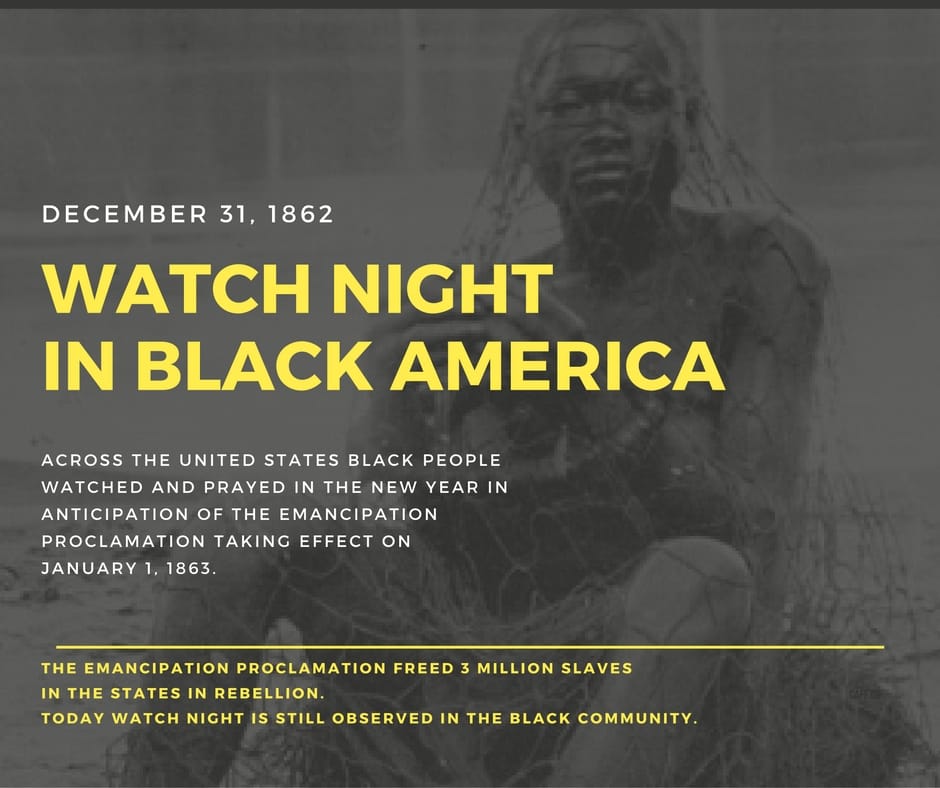
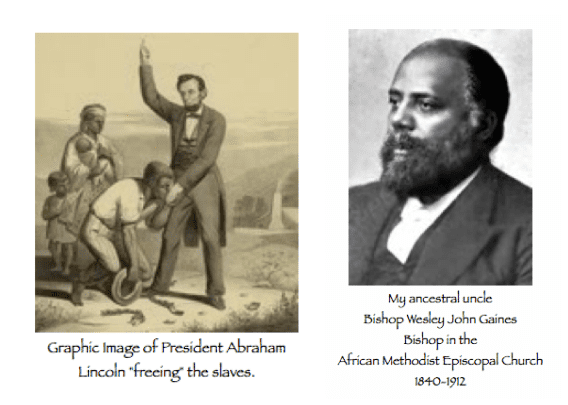
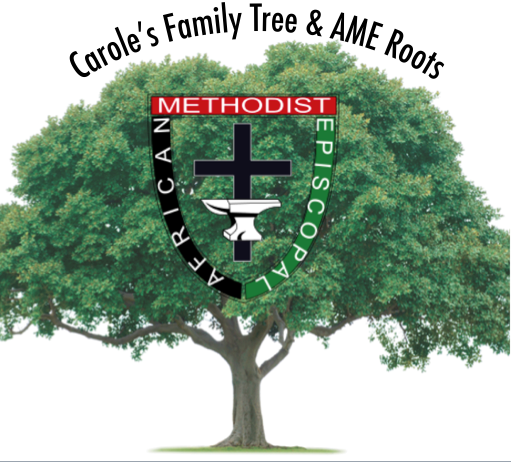
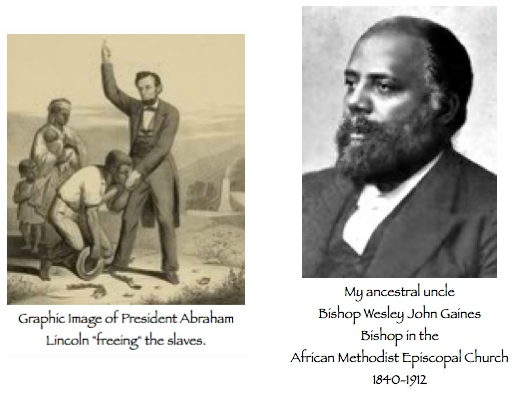
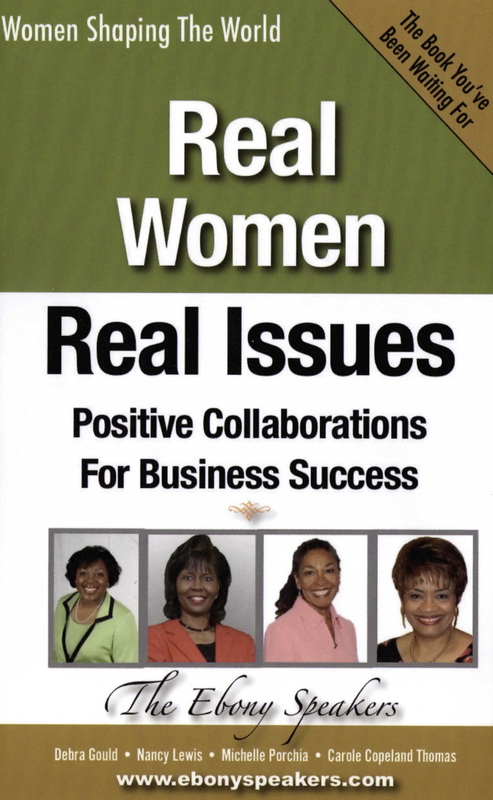
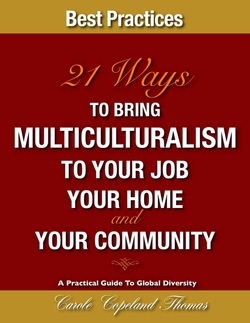
 RSS Feed
RSS Feed


